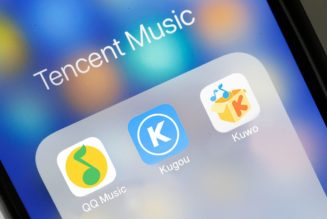Boss Talk
Nick Clegg: Meta’s global affairs president on new monetisation tools for content creators
Friday March 22 2024

Meta’s global affairs president Nick Clegg. ILLUSTRATION | JOSEPH BARASA | NMG
Meta’s global affairs president Nick Clegg was in Nairobi this week. It was the first time he visited the country in his present capacity. The former UK deputy prime minister spoke with Business Daily’s lead editor Paul Wafula to discuss his State House visit and explain the new tools the firm says it is making available to content creators in Kenya to monetise their work. He also delved into the global tech job cuts and how they have affected Africa as he skirted around the sticky issue of the plight of Kenyan content moderators.
What brings you to Kenya and what are you discussing with State House?
Well, you know, not just Kenya, but the whole region is a very dynamic ecosystem in terms of the digital economy. If you just look at the use of mobile payment systems here, it is leading the world. Lots of people want to try and make a living online, and we’re at a point where the internet is changing dramatically with the advent of generative AI.
Millions of people use our services here in Kenya and across the region. So, it seemed like a good time to come and see what more we can do to try and be useful to our families, individuals and businesses in Kenya.
What exactly did you discuss with Kenya’s President?
One of the reasons I was keen to come here is there is such a budding community of young creators who are creating fun, inspiring creative content on our platforms. But until now they haven’t been able to monetise that.
I came here to meet not only the President and members of the government but also Kenyan creators to explain how they will now be able to make a living directly on Facebook and Instagram on the back of their creative content. We will finally open the eligibility process in two weeks to creators in Kenya and a few weeks later, within the next two or three months, creators will be able to use a whole range of tools to earn money directly from what they are doing online.
Whether it’s running ads, streaming Facebook or running ads between reels. So, in a sense, it’s all part of a journey where we’re both, if you like, from the infrastructure, but also in terms of the online economy trying to play our parts to assist in the development of the digital economy here in Kenya. It’s exciting.
What will actually change when you open up these new monetisation tools? How much more money will content creators make and how?
It depends on how successful they are. It depends on how many people… look at their content. It depends on how engaging their content is. We don’t run their business for them. They all run them. I think the thing to remember about us is that we are a platform. We are a platform for other people to build great businesses. So, the whole point of Facebook is to, particularly, ensure that small businesses can use cheap online ads to reach customers in a way that previously only big corporations with big marketing budgets could afford.
We build the tools, and people then have to decide for themselves whether they use the tools or whether they don’t use the tools. You asked me how they’re going to make more money, I mean…they will have to decide for themselves how they want to place the ad on the side of which reel.
You know there is a big issue here in Kenya about content moderators? They are asking, have you brought a solution?
Honestly, I can’t say anything about something which is subjudice. It’s in a court process. I don’t think it’s sensible for me to run a commentary which is being played out in the courts.
What I can tell you is that we, of course, want to continue employing highly qualified people in Kenya who can help us with, not just with content moderation, but with, you know, labelling for AI and our wish to do that has not changed at all as you know.
In terms of how our content moderation operations work around the world, we operate them at the very highest standards in the industry.
We have seen big tech companies laying off thousands of workers across the world. What is the state of African jobs in Meta?
I would urge you not to think about jobs in terms of how many. Do we employ 12 people, eight people or nine people? I mean, how big is the population of Kenya? 54 million? What is important is how many jobs our tools create for the family shop that is using Facebook to communicate with its clients or the creators that we talked about.
The rough estimate here in Kenya is that for every dollar that is spent or Euro…that is spent on advertising here in Kenya, it brings back around 2.6, 2.7. I think that the direct employment of our teams in one country or another is not really the… macroeconomically it’s irrelevant.
You speak a lot about open-source AI and I mean, what’s the story that you’re selling in Kenya?
I think the story there is…Look, at the moment, because these large language modules are so expensive to build. It’s incredibly expensive to build. You need a huge amount of money, you need a lot of data, you need a lot of more trainable energy and you need a huge amount of computer capacity, the so-called GPUs which are currently only produced by Nvidia.
So, there are only a few companies that can do that around the world. Meta, Microsoft, Amazon, Google and so on. We believe that it’s just not feasible or sustainable to believe that that technology, given how transformative it is going to be, will all be touched by generative AI. We’ll all be using generative AI tools. We just don’t think it’s viable to imagine that only a handful of West Coast companies can control that technology. We think that technology needs to be democratised.
Africa is going through elections and several other elections are happening around the world as well. But for Kenya and the rest of the region, the safety of kids and harmful content on your platforms remains a major concern.
The issue of child protection is a universal thing. It doesn’t matter where you live. You can live in India, Australia, Kenya or Argentina. Everybody wants to make sure that their kids are kept safe online. I think it’s a universal obligation on platforms like Meta to make sure that when young people use our services they do so as safely as possible.
Over the last five or six years, we have spent around $20 billion on safety and integrity on the platform. About five billion of that in the last year. We employed around 40,000 people to try and help people, particularly kids stay safe. We’re constantly introducing new features, new protections, and new parental controls which people can use.
I think over the last few months, we’ve introduced well over 30 new features. For instance, nudging the youngsters, if they are looking at the same content over time, sort of encouraging them to perhaps look at different content, giving parents much greater control over what their children see, and how much time they spend on the app. We now default people under 16 to the most private setting possible. We don’t allow adults to communicate with children who they don’t know and of course, we cooperate with law enforcement, with the police and with governments.
We’re announcing, this afternoon (Monday March 18, 2023), something called the amber alert, which is a new mechanism by which we’ll share information with the law enforcement here in Kenya, about missing children. It’s an extremely effective tool, trying to notify people about missing children and trying to locate them and of course, we work across the industry. So, there is a lot of industry-wide cooperation that we do.
Do you think there’s more work that needs to be done in markets like Africa where the majority of the population is actually below 18?
I think there is always more work to be done everywhere. We built a tool with no language left behind, which does seamless translation across 200 languages. We have new AI tools which can do instant translation and in the future by the way, not now but in the future, people will be able to wear glasses made by Meta, that you can look at a sign written in Mandarin and ask for it to be translated into French.
I do think visual technology and the fusion of augmented reality technologies with AI will make it exceptionally easy for human beings to communicate with each other across languages.
How prepared are we in terms of dealing with misinformation in elections?
Since January, you’ve heard of elections in Taiwan, Pakistan, Bangladesh, and Indonesia, which is the world’s third-largest democracy. We have, I think probably now by a long way, the industry’s most subtle teams cross-engineering policy, data science, local teams and so on, trying to navigate these elections as they pass by on our platforms.
But we haven’t seen what I call systemic widespread. I signed a new agreement with Microsoft and Google and with several other companies. The problem is if you use one of our generative tools or image-generation tools to imagine or create an image, I don’t know, a woman diving off a cliff into the Red Sea or whatever, you will get a perfectly realistic photograph doing that.
But if you produce that same image using a different image tool not owned by Meta and then you share it on Instagram, we have a dilemma because you have created a synthetic photograph using another tool which we don’t control which maybe doesn’t have a watermark. So how do we tell our users on Instagram when you share it with your friends on Instagram. And so that is why we are forcefully pushing everybody in the industry, small companies as well the large, to agree to a common set of standards on what is called invisible watermarking. The detection of the prevalence of synthetic content.









